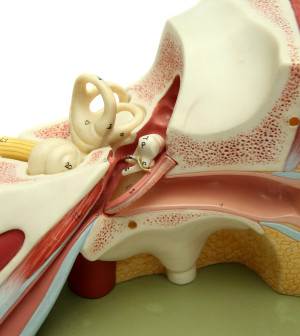- Could Your Grocery Store Meat Be Causing Recurring UTIs?
- Are You Making This Expensive Thermostat Error This Winter?
- Recognizing the Signs of Hypothyroidism
- 10 Strategies to Overcome Insomnia
- Could Artificial Sweeteners Be Aging the Brain Faster?
- Techniques for Soothing Your Nervous System
- Does the Water in Your House Smell Funny? Here’s Why
- Can a Daily Dose of Apple Cider Vinegar Actually Aid Weight Loss?
- 6 Health Beverages That Can Actually Spike Your Blood Sugar
- Treatment Options for Social Anxiety Disorder
Breathalyzer Lock Laws Prevent Drunk-Driving Deaths: Study

Breathalyzer-type devices known as ignition interlocks that prevent drunks from driving do prevent deadly accidents, a new study indicates.
States started passing mandatory interlock laws in 1993. This new study found they were associated with a 7 percent decrease in the rate of fatal crashes involving at least one drunk driver.
“Our study demonstrates the value of mandatory ignition interlock laws across the United States,” said study leader Emma McGinty.
“We already know that alcohol plays a tragic role in the number of motor vehicle crash fatalities each year. Interlock laws which are mandatory for all DUI offenders save lives,” said McGinty, deputy director at the Johns Hopkins Center for Mental Health and Addiction Policy Research in Baltimore.
Cars equipped with an ignition interlock won’t start if the driver’s blood alcohol level exceeds a preset limit. The device works like a breathalyzer, using a sensor to measure the alcohol in a person’s breath.
All 50 states have some type of ignition interlock law, but the researchers noted only half require all those convicted of a DUI to use this device. Some states just require them for repeat offenders or those caught driving with very high blood alcohol amounts.
For the study, the researchers examined trends in alcohol-related fatal car accidents from 1982 to 2013. After taking other motor vehicle safety laws into account, the researchers estimated that 1,250 alcohol-related fatal crashes were prevented in states where ignition interlock laws are enforced.
In the United States, alcohol-related car accidents kill about 10,000 people a year, the researchers pointed out.
“Until recently, there hasn’t been any evidence on whether these [ignition interlock] laws prevent alcohol-involved fatal crashes, and specifically whether mandatory/all laws are more effective than permissive and partial laws,” McGinty said in a Hopkins news release.
“Our study suggests that they are effective, and it’s encouraging to see more and more states moving towards this evidence-based policy change,” she added. “Since 2005, we’ve seen over 20 states adopt interlock laws for all drunk-driving offenses. We’d like to see the remaining states follow suit.”
The study was published Jan. 5 in the American Journal of Preventive Medicine.
More information
The U.S. National Congress of State Legislatures has more on state interlock laws.
Source: HealthDay
Copyright © 2026 HealthDay. All rights reserved.










